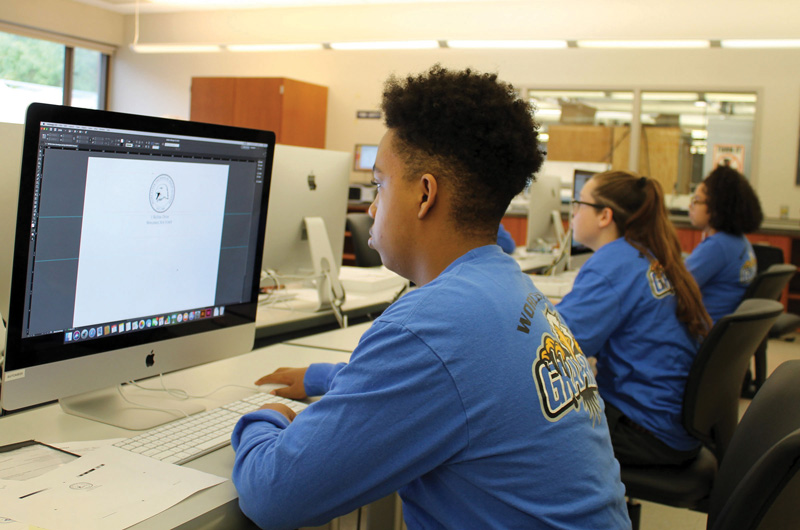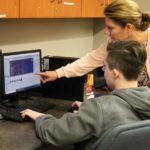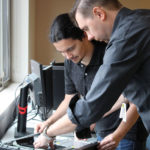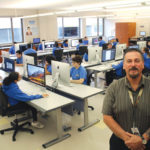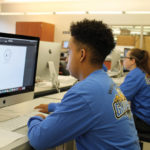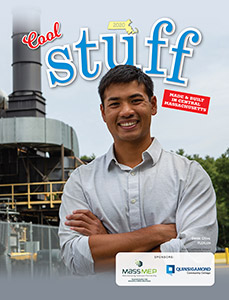Worcester Technical High School
When Worcester Technical High School (WTHS) opened its doors in 2006 the world looked vastly different – technologically speaking. Social media platforms like Facebook and Twitter were just gaining traction; video gaming was entering its infancy; web development was somewhat basic; and computers were years away from the capabilities they now have.
Company Profile
Website: http://techhigh.us/
Address: 1 Skyline Drive
Worcester, Massachusetts 01605
Full Time Employees: 1,440
Year Founded: 1910
Principal: Kyle Brenner
Services/Products
In the ensuing years, technology has improved greatly; and the course offerings at WTHS have clearly kept pace. Students not only have an opportunity to learn the basics of computer science, from diagnosing problems and maintaining servers to programming, coding and network support services, but they also play an active role in keeping the school’s technology up and running.
Front-Line Technicians
Susan Leboeuf, ISSN (Information Support Services & Network) instructor, indicates that students in the IT, ISSN and web development tracks are on the front line, managing every aspect of the school’s computer network system.
The skills and experience students gain in the technology fields form a strong foundation for careers in the manufacturing industry, Leboeuf emphasizes. “Every phase of what we touch involves computers, from 3-D printing, machine tech, the electro-mechanical shop and drafting. Everything in manufacturing is programmed to a computer with specifications, which the computer reads to the machine.”
Teachers in the school’s 22 trades rely on the students in the technology shops to troubleshoot when computer glitches occur. For example, in the automotive department students use a simulator that presents different scenarios; students identify potential problems and figure out how to fix them. “It’s a way for students to do this in a safe setting before going out into the field,” Leboeuf says. But when that infrastructure fails to operate properly, technology students diagnose and fix the issue so the shop can get back to business.
Leboeuf notes that some students have taken advantage of Cyber Patriot, a cybersecurity program developed by the Air Force and offered at local community colleges, public and private schools. Students study different scenarios involving cyber breaches, identify and fix vulnerabilities in the system.
Jeffrey LeBoeuf, programming and web development teacher, and gaming and coding co-teacher, reports that his students use the basics of game development to learn programming. As an example, he cited the cosmetology shop, which uses a case management system to book appointments, send reminders and manage the business. “This is the type of software program a real business would buy,” he says. “The students maintain the system and also create websites for external parties.”
Furthermore, LeBoeuf points out that WTHS has many CNC machines, which many industries integrate into their manufacturing operations. “If a simple PC goes down, you can’t run the machine, production decreases. Shipping also depends on computers and networks. Technology is embedded in every trade,” he says. “Our students learn how to install, network, fix and maintain computers and networks.”
Technology and manufacturing come together in the graphics communications shop where students use the skills they learn to design and create clothing, books and collateral materials for local businesses. Department head Bob Mazzone explains that students learn to operate several different machines, including an offset press and embroidery machine. “They are exposed to all aspects of manufacturing. Students design the products, run the machines or presses and meet with clients,” he says. “This career track prepares the student for a variety of careers as well as for entrepreneurship.”
Coops Offer Real-World Experience
While students have many opportunities to put their education to work inside the school, they also have the chance to take those skills into the real world. Jennifer Hardy, programming and web development lead teacher, explains that several local companies provide coop opportunities for students.
At Wilson Language Training Corp. in Oxford, an educational technology company, students work a level one Help Desk. “They manage issues with customers who have a problem with a product or technology,” says Hardy. “This provides training to learn about the local climate and the tools that are part of day-to-day operations.”
Students have also done coops at computer consultant company Domitek in Worcester. There they train to install computer servers, set up small businesses with computer systems and provide IT services, computer support and repair.
At Northborough-based Applied Communications Services, a wireless communications equipment business, students perform installations, from wiring a physical network to installing network and security communications systems.
Hardy points out that for the last couple of years the Worcester Public School system has relied upon the expertise of students from WTHS to man their Help Desk for all grades, from pre-school to high school. “The students travel throughout the district, helping teachers manage their networks, software and hardware,” says Hardy. “They work under the supervision of a professional technician. This is incredible training.”
Admittedly, coops are important to the student, but Hardy emphasizes that these workplace opportunities form a foundation. “We want students to recognize that there are two pathways for career advancement – through higher education or through direct entry into the technical workforce,” she says.
Following graduation, many students do continue their education, mostly at local institutions. Quinsigamond Community College serves as a common entry point to a four-year college, such as Framingham State University; UMass Lowell; UMass Amherst; WPI; and others.
Innovation Pathways
Each year, eighth grade students in Worcester consider their future education by deciding whether the technical approach that Worcester Technical High School has to education is appropriate for them. Spring applications from these students far exceed the enrollment capability of Worcester Tech. Worcester has and continues to answer this need by adding some technical education experience in each of the comprehensive high schools and this year has launched an exciting program to further enhance technical education and utilize the Facility and expertise of Worcester Technical High School.
The Innovation Pathways Program will utilize Worcester Technical High School beyond regular school hours to increase access to students. This year, the program targets four technical areas and is marked for further expansion in future years as we continue to increase the number of student participants. In each technical pathway, Worcester Tech teachers, experienced both in industry and education, teach the students, who achieve industry recognized credentials that help them enhance their experience in the career field of their interest and prepare them for the transition to further education. The four pathways are aligned with state and regional data to address a workforce gap in these sectors and will additionally prepare students for further advancement in their field should they choose to pursue it. The technical areas for the 2018-2019 school year are: Advanced Manufacturing, Allied Health, Civil Engineering, and Information Technology with a networking approach.
To support students involved in both programs, Worcester has also implemented a College and Career Readiness class in each of the high schools. Through these classes, students will gain employability skills, technology and financial education, and plan their future career and the steps necessary to achieve those goals.
Careers/Job Opportunities
Academies:
Alden Design & Engineering Academy
• Advanced Manufacturing
• Auto Collision
• Auto Tech
• Drafting
• Robotics & Automation Technology
• Welding Tool Technology
Allied Health & Human Services Academy
• Allied Health
• Biotechnology
• Cosmetology
• Early Childhood Education
• Veterinary Assisting
Coghlin Construction Technology Academy
• Carpentry
• Electrical
• HVAC/R
• Painting and Design Technology
• Plumbing and Pipe Fitting
IT and Business Services Academy
• Culinary Arts
• Finance and Marketing
• Graphic Communications
• Hotel and Tourism Management
• Information support Services and Networking
• Programming and Web Development
Photos
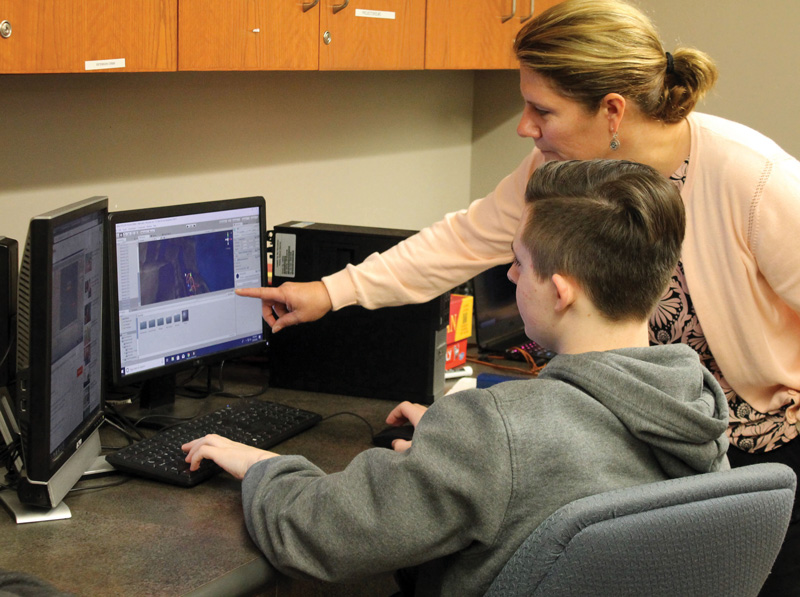 ,
, 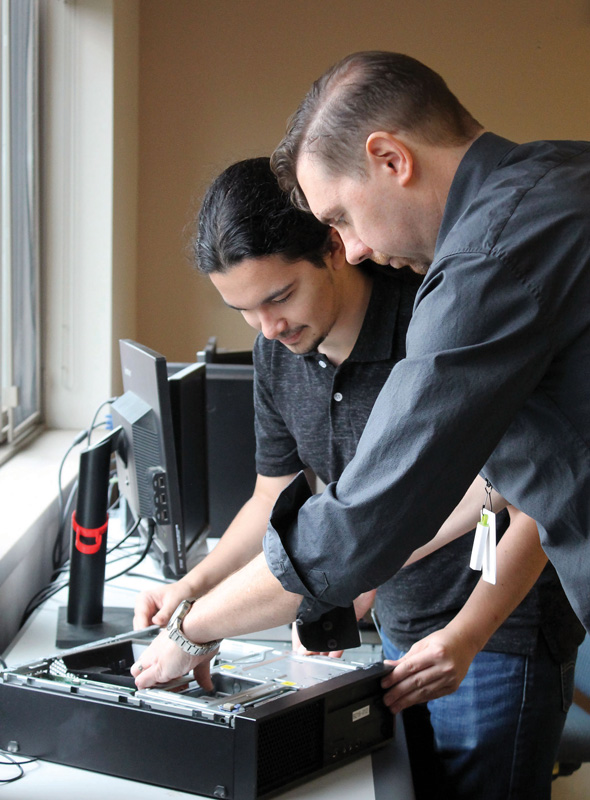 ,
, 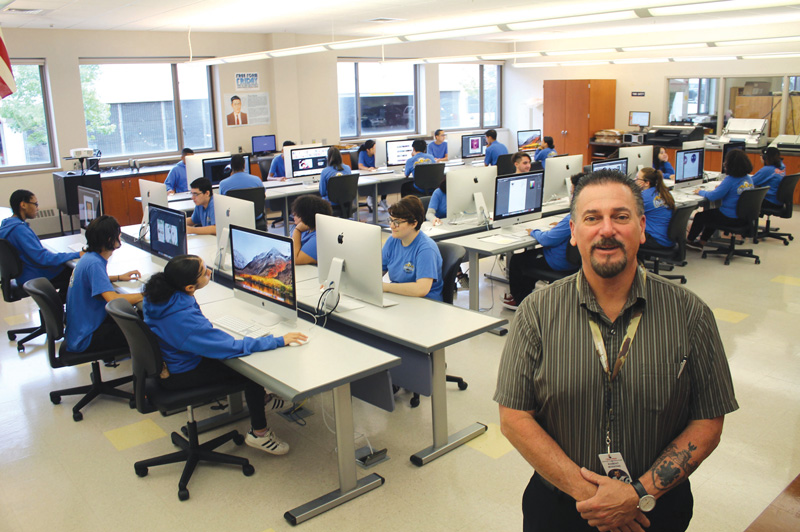 , and
, and 